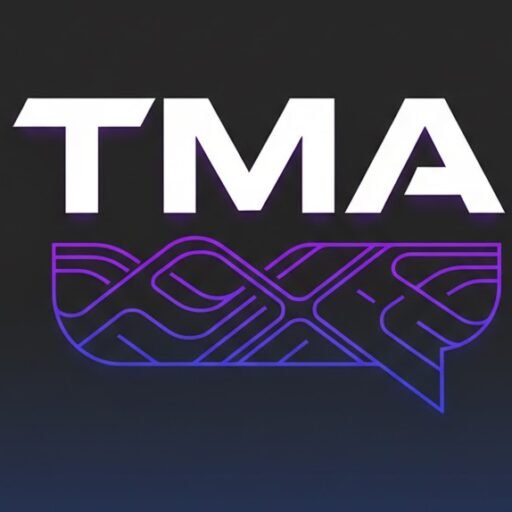US Lawmaker Pushes for Trading Ban
The Allegations
Representative Ro Khanna, a Democrat from California, has publicly expressed concerns about Donald Trump’s purported involvement in the crypto space, specifically citing his son’s connection to World Liberty Financial (WLFI). Khanna has linked Trump’s controversial pardon of Binance founder Changpeng “CZ” Zhao to the crypto project, alleging a quid pro quo relationship.
Khanna argues that CZ, who pleaded guilty to violating the US Bank Secrecy Act for failing to maintain adequate Anti-Money Laundering (AML) measures at Binance, received preferential treatment because Binance allegedly supported WLFI. He echoed sentiments from Representative Maxine Waters, suggesting that the pardon was granted in exchange for financial backing of “the president’s son’s cryptocurrency firm”.
While Eric Trump has vehemently denied his father’s direct involvement in WLFI, the association continues to draw scrutiny. The controversy highlights the growing unease surrounding the potential for political influence and insider trading within the relatively unregulated crypto market.
The Proposed Legislation
While the specifics of Khanna’s legislative proposal remain undisclosed, his stated aim is to prohibit “any elected official from having cryptocurrency and accepting foreign money.” This sweeping ban could extend to stocks as well, addressing concerns that elected officials profit from insider information or use their positions to influence market outcomes.
The move comes amidst a broader debate in the US regarding the ethics of government officials engaging in financial markets. The bipartisan congressional stock trading bill, currently under consideration, aims to address similar concerns in the stock market. This makes the timing of Khanna’s proposal particularly relevant, as it could potentially be incorporated into the existing legislative framework.
Read Also:Politicians & Crypto: Trading Ban Proposed
As of October 2025, Khanna’s bill has yet to be officially introduced, but the topic of official trading is gathering speed in Washington.
Khanna’s Own Financial Activities
The debate surrounding Khanna’s proposal is further complicated by his own extensive involvement in the stock market, according to data from Quiver Quant, Khanna’s stock trading volume in 2025 alone totalled $80.3 million. Since entering Congress in 2017, his total trade volume has exceeded $580 million, encompassing over 35,000 individual trades. His primary sectors of focus include financials, information technology, and healthcare.
This raises questions about potential hypocrisy, as Khanna’s own financial activities could be perceived as conflicting with his stated goal of preventing government officials from profiting from their positions. Critics argue that Khanna’s extensive trading history undermines the credibility of his proposed ban, suggesting that it may be motivated by political considerations rather than genuine ethical concerns.
The Implications for the Crypto Market
Increased Regulatory Scrutiny
Regardless of its ultimate fate, Khanna’s proposal signals growing awareness and concern among lawmakers about the potential for abuse and corruption in the crypto market. This increased scrutiny is likely to lead to stricter regulations and oversight of the industry, potentially impacting market participants and the overall development of digital assets.
The debate also highlights the need for greater transparency and accountability within the crypto space. As the industry matures and becomes more integrated with traditional financial systems, regulators are likely to demand greater compliance with existing laws and regulations, particularly those related to anti-money laundering (AML) and know-your-customer (KYC) requirements.
Impact on Crypto Adoption
The outcome of this legislative push could significantly impact crypto adoption in the US. A blanket ban on government officials trading crypto could send a negative signal to the market, potentially dampening investor enthusiasm and hindering industry growth. On the other hand, it could be argued that such a ban would enhance public trust in the government’s integrity, potentially paving the way for greater acceptance of digital assets in the long run.
Furthermore, the debate over the ethical implications of government officials’ crypto ownership is likely to influence public opinion and shape the future regulatory landscape for digital assets. As regulators grapple with the challenges of overseeing this rapidly evolving technology, the need for clear, consistent rules becomes increasingly apparent.
The Road Ahead
In 2025, the saga continues. Khanna’s bill, if formally introduced, is expected to face significant opposition from both sides of the political spectrum. Proponents of free markets and individual liberty will likely argue against the infringement on personal financial freedoms. At the same time, those concerned about government overreach may question the practicality and enforceability of such a sweeping ban.
Ultimately, the outcome of this legislative battle will depend on lawmakers’ ability to strike a balance between the need for ethical governance and the desire to foster innovation and growth in the crypto industry. The future of digital assets in the US may well hinge on the decisions made in the coming months.






